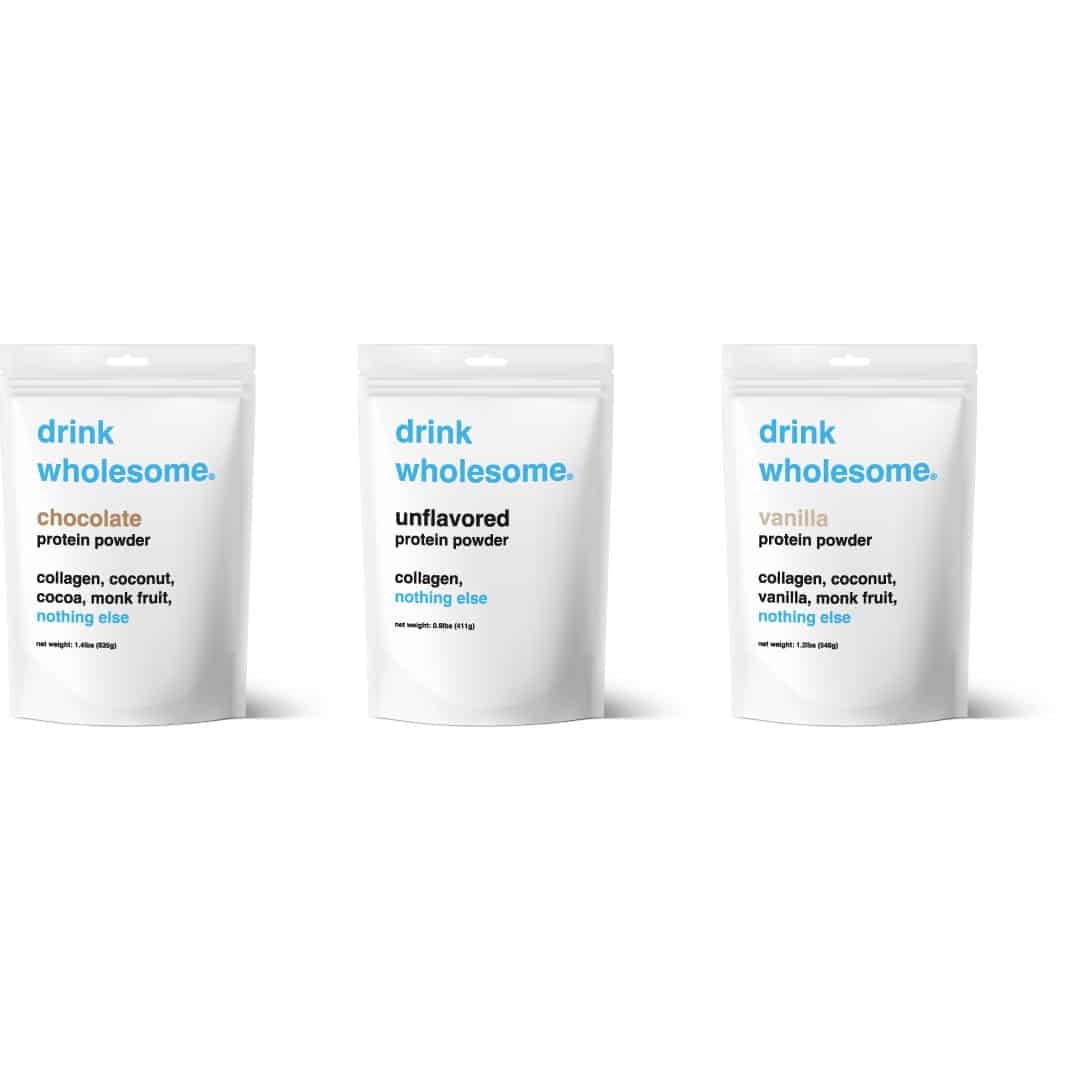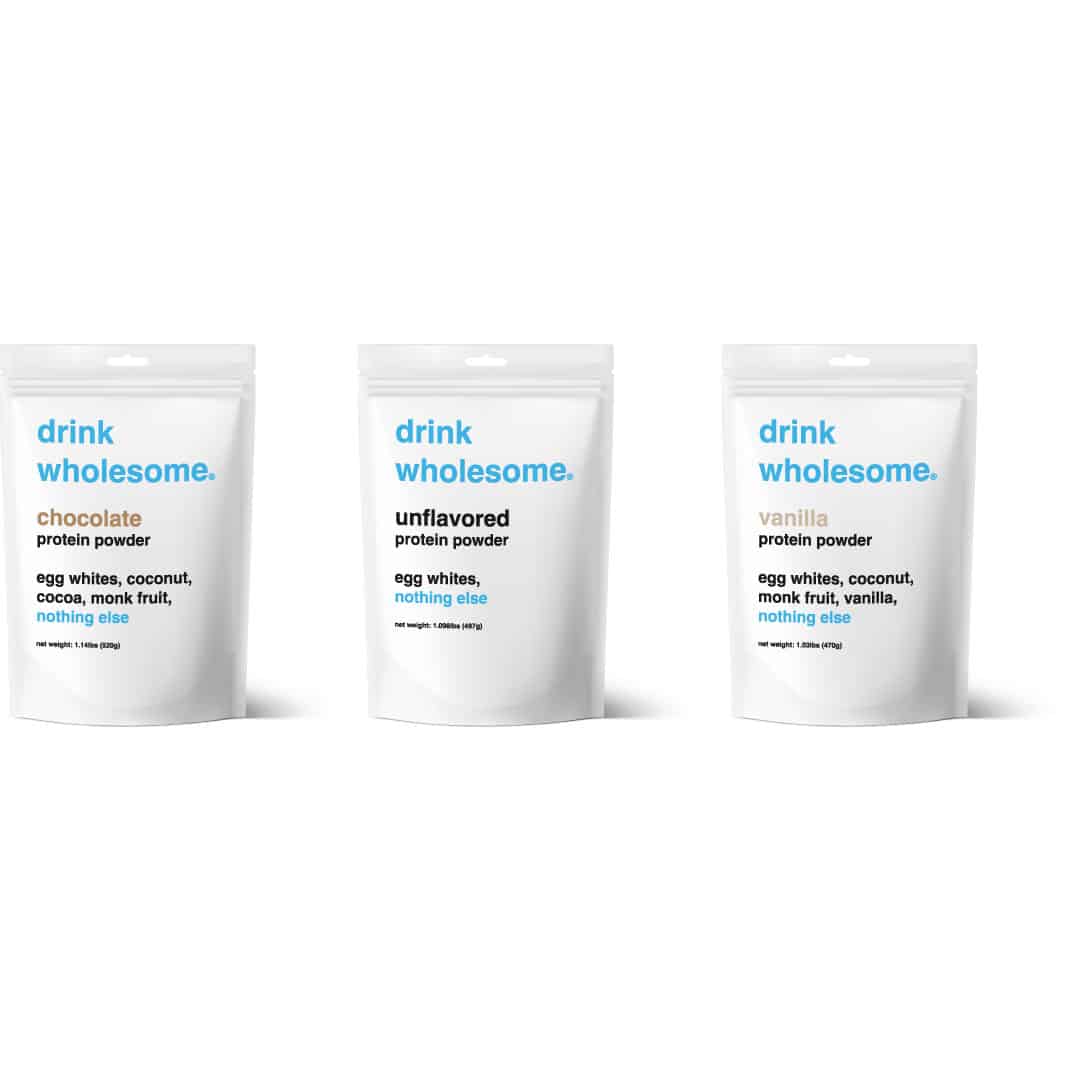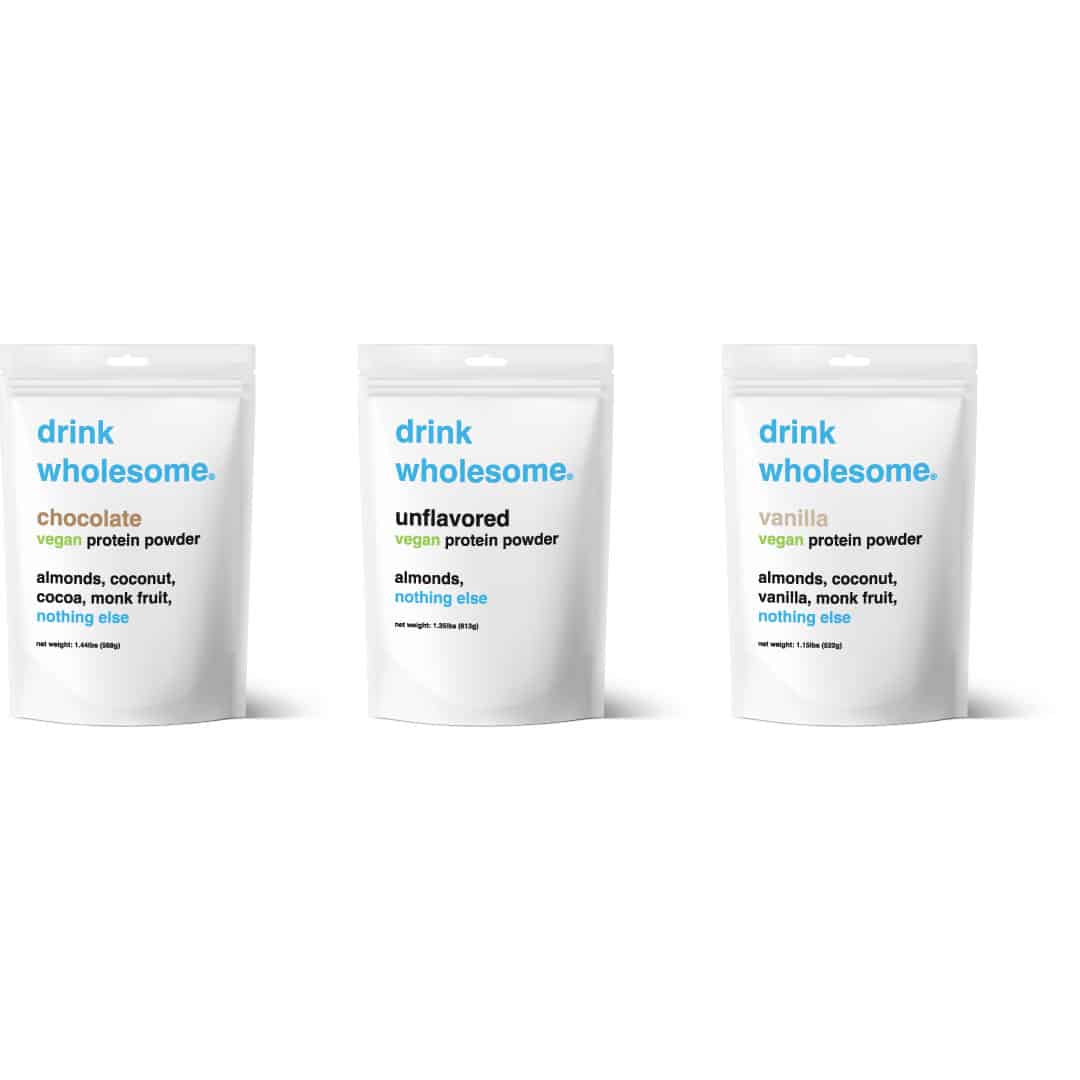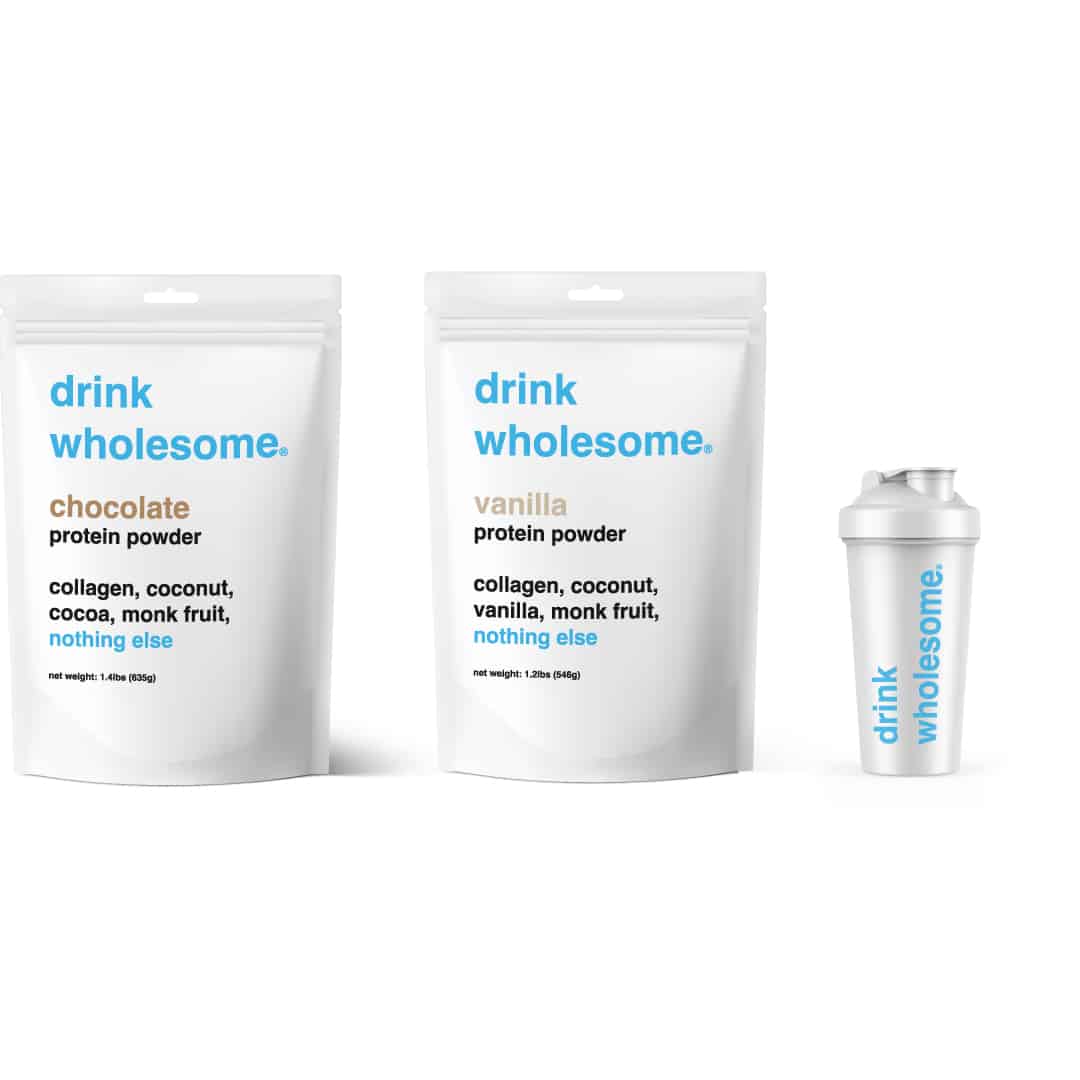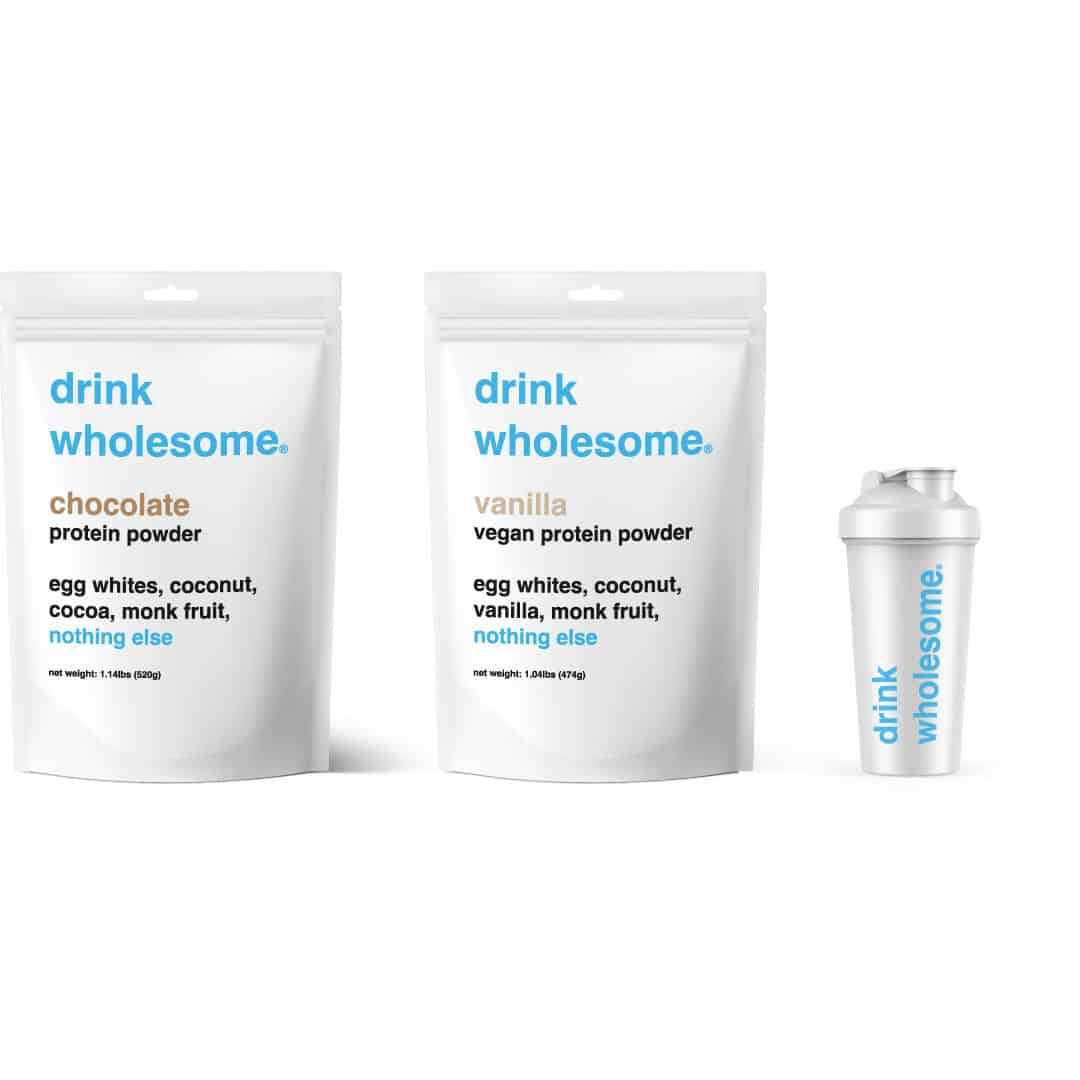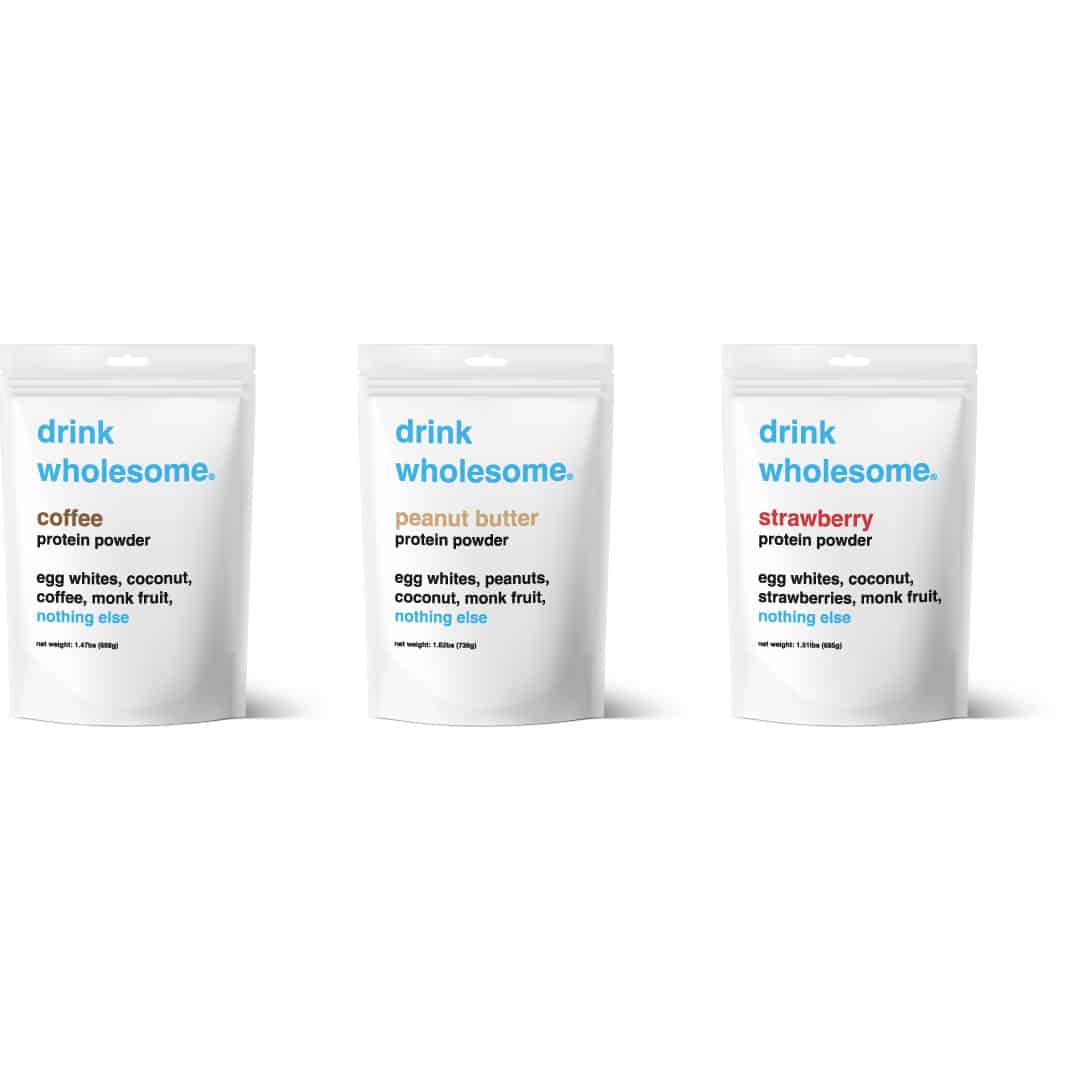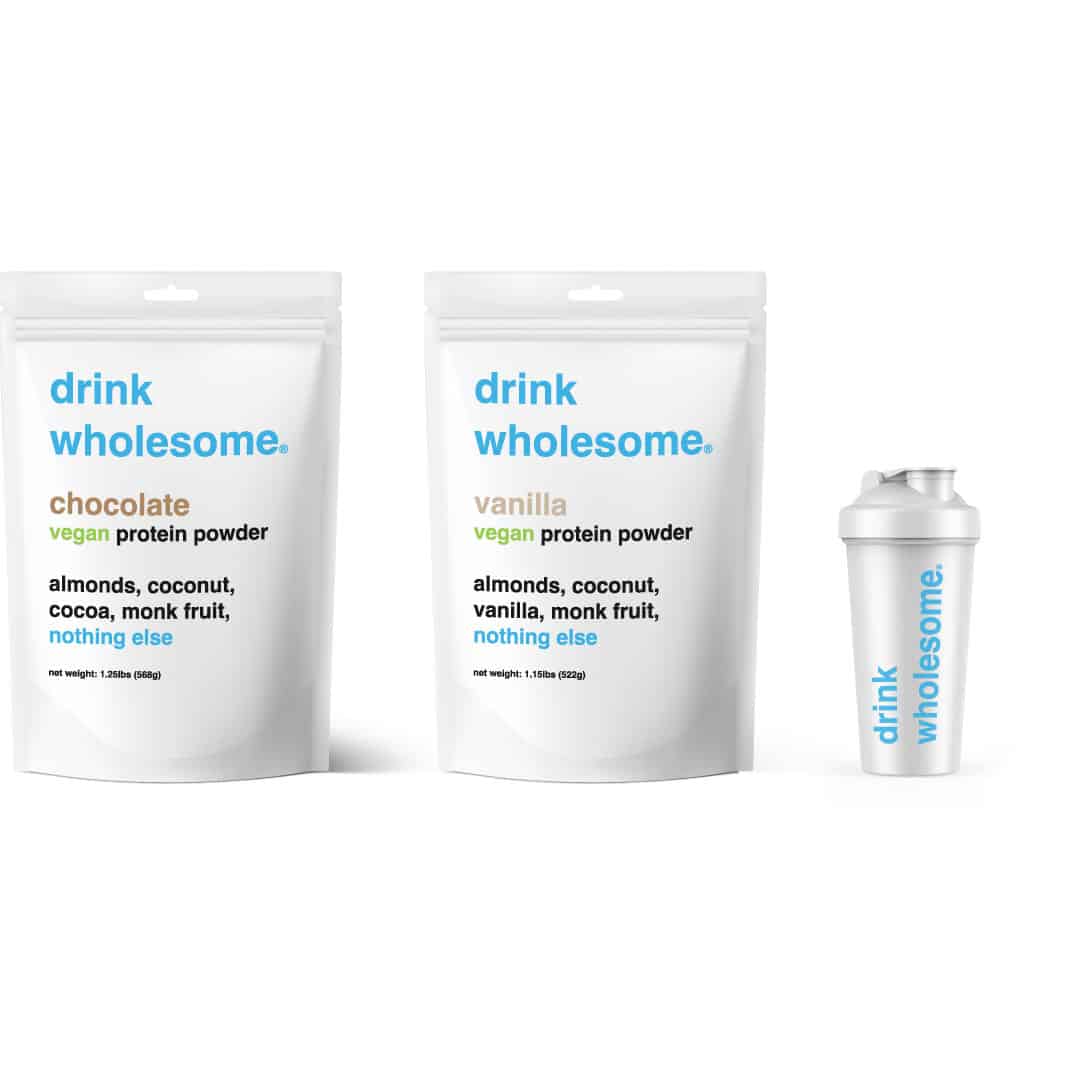Collagen Protein Powders
Egg White Protein Powders
Protein Powders
Collagen Protein Powders
Egg White Protein Powders
Egg White Protein Powders
Protein Powders
What are protein powders?
Protein powders are sources of dietary protein in powder form that can be used to supplement your diet. You should try to get as much protein as you can from dietary protein sources like eggs, fish, legumes, meat, nuts, and seeds, and use protein powder to fill in the gaps.
Protein powders can be used to make protein shake, or added to smoothies, oatmeal, and other recipes. Although different people use protein powder to achieve different wellness goals, they all use it for the same basic reason: to increase their protein intake.
It is important to understand that protein powder alone will not make you stronger or lose weight. A protein powder can certainly help you achieve your wellness goals, but only when paired with a healthy lifestyle.
Collagen vs egg white vs almond protein?
You may have noticed we offer three types of protein powder: collagen protein powder, egg white protein powder, and vegan almond protein powder. The reason we offer these three types is to accommodate the needs and preferences of as many customers as possible. Some people have egg allergies or sensitivities, for example, and are unable to use our egg white protein powders.
As long as you are eating a balanced diet, any of these protein powders can help you achieve your wellness goals. Just pick the one that best suits your personal needs and/or preferences.
Why are your protein powders easy to digest?
Our protein powders are easy to digest for three reasons:
1. They are additive-free. Even in small amounts, food additives like emulsifiers and thickeners can cause painful digestive issues and long-term gut health problems, especially if you have a sensitive stomach.
2. They are dairy-free. Dairy-based ingredients like whey and casein contain lactose, a sugar that most adults cannot fully digest.
3. They are made with whole food protein sources. Other protein supplements are made with protein concentrates and isolates, which have been stripped of everything but the protein, including the enzymes, fiber, and other natural digestive aids that help you break them down.
Do your protein powders taste good?
Our protein powders taste good for two reasons:
1. Our protein powders are made with whole food protein sources, not protein concentrates or isolates. The latter are the reason why other protein powders taste like chalk.
2. Our protein powders are sweetened with monk fruit. Monk fruit, also known as luo han guo, is a natural sugar substitute that does not have the bitter aftertaste characteristic of artificial sweeteners, sugar alcohols, and stevia.
How do I use your protein powders?
Our protein powders can be mixed with 1-2 cups of cold milk, a milk alternative, or water to make a protein shake. They can also be added to smoothies, oatmeal, and other recipes for an easy protein boost. Check out our protein powder recipes for more ideas. Note that if you do choose to make a protein shake, and do not have a blender, use a shaker bottle. Unlike other companies, we do not use food additives to help our protein powders dissolve.
When should I use your protein powders?
The best time to use protein powders is in the morning. Eating lots of protein at breakfast will keep you full until lunch, discouraging snacking and overeating later in the day. Another good time to use protein powders is after a workout. Adding protein to your diet at this time can speed up the recovery process.
Are your protein powders safe for people with gut issues?
Our protein powders are dietitian-approved for people with sensitive stomachs and gut issues like IBS. They are safe for most conditions, but we recommend you consult your doctor or a registered dietitian before making changes to your diet.
Are your protein powders safe for pregnancy and breastfeeding?
Our protein powders can help pregnant and breastfeeding mothers safely meet their protein needs. Unlike other companies, we do not use harmful food additives. Learn more about how to use protein powders to support pregnancy and breastfeeding.
Can your protein powders help with weight management?
Our protein powders can help you achieve and maintain a healthy weight. Whether you are looking to gain or lose weight, our protein powders can help. Learn more about how to use protein powders for weight management.
Where can I buy your protein powders?
You can buy our protein powders here on our website. All orders come with free US shipping, and you can save 15% by subscribing. Subscribers can modify or cancel their subscription at any time.


